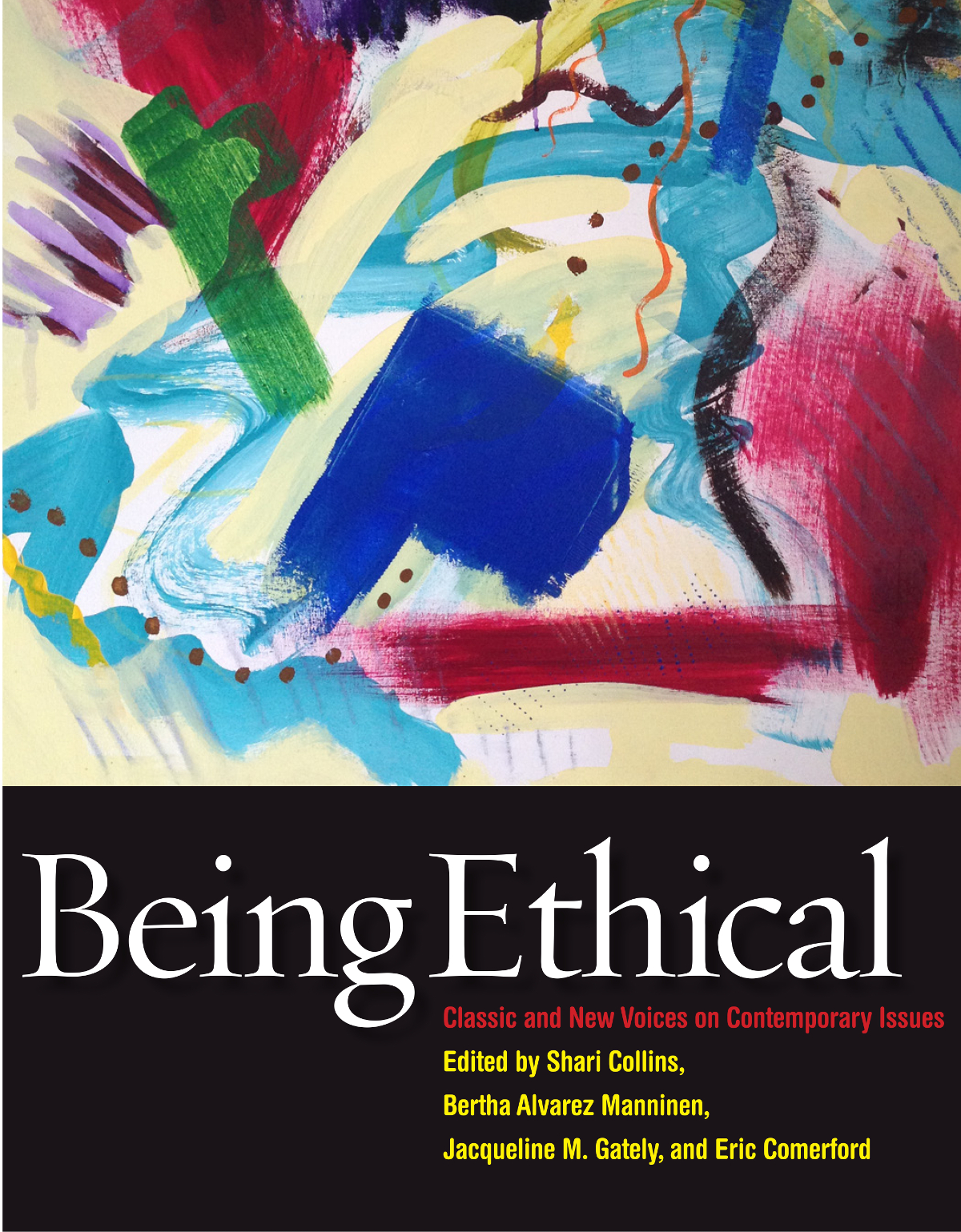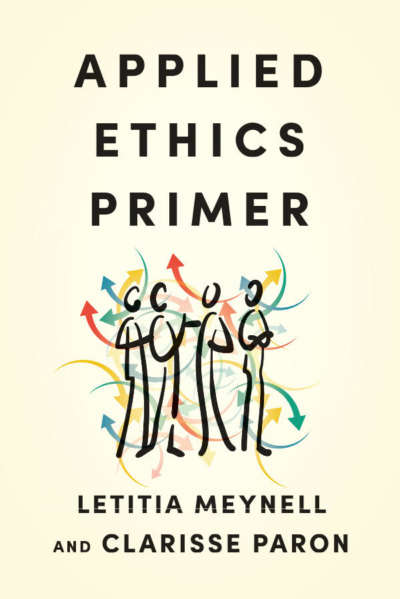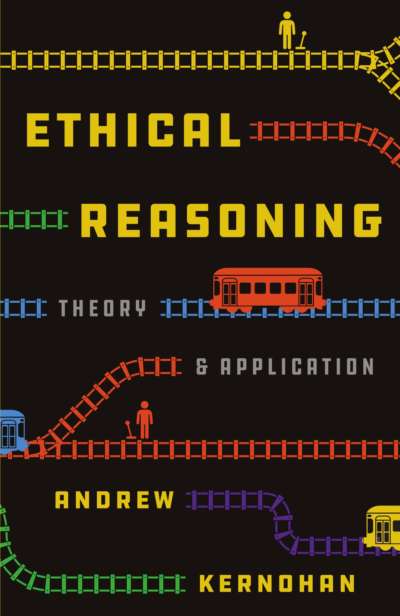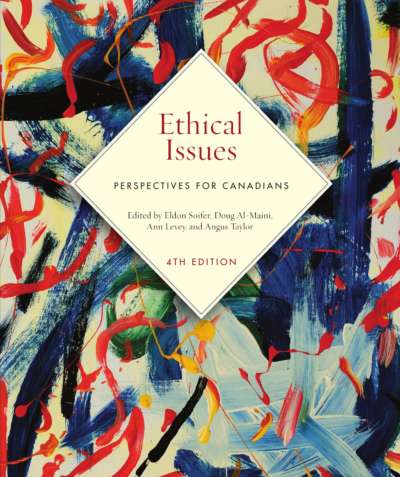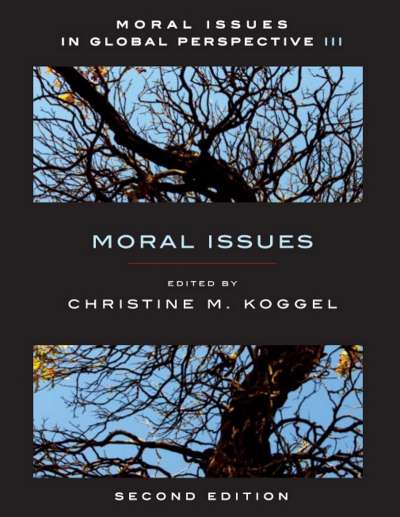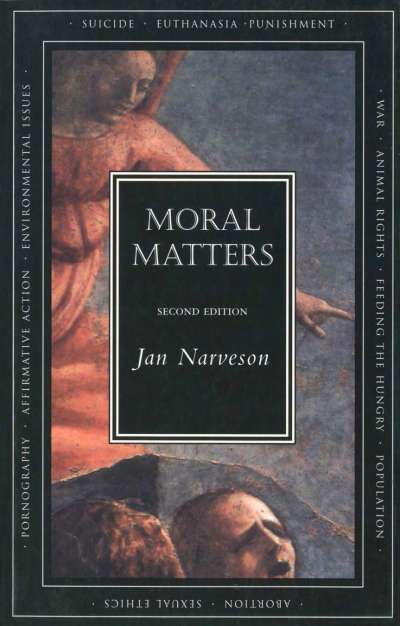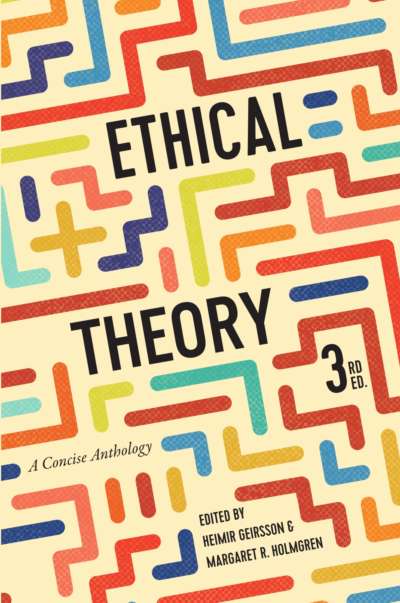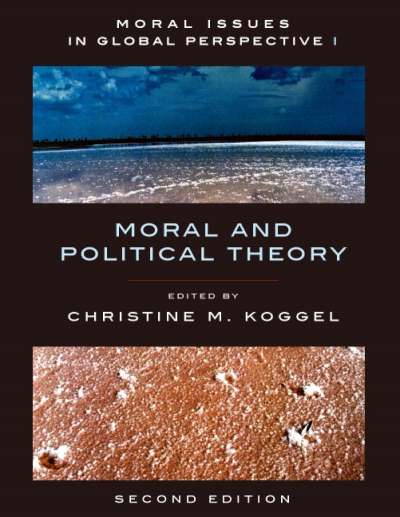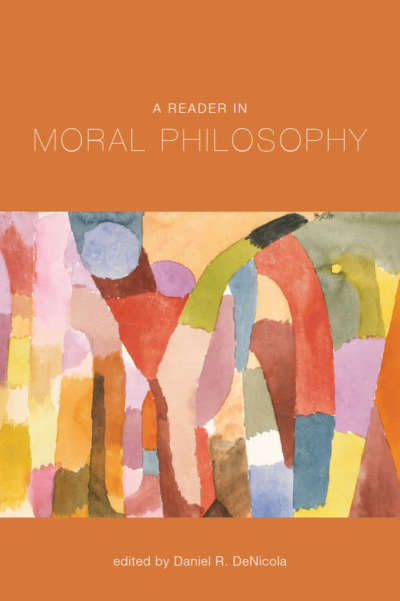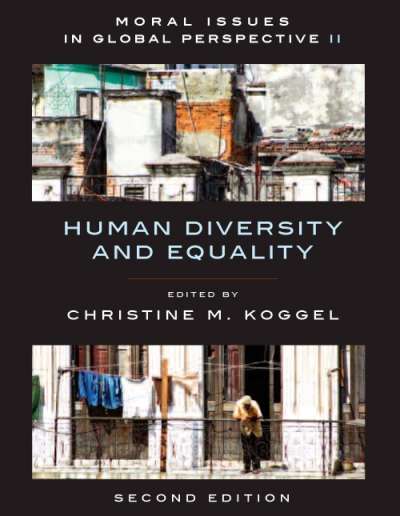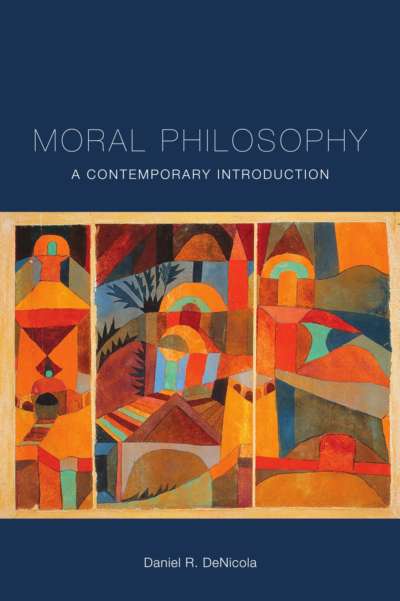This anthology takes a broad approach to ethics, incorporating traditional topics and texts while bringing in voices and themes that are too often excluded. A substantial section on ethical theory is provided, as are readings on topics such as oppression, sex, identity, the environment, life and death, war and terror, and caring for others. Accessible introductions and discussion questions are included throughout to contextualize material for the student reader without playing favorites among the positions at issue.
This book can be purchased on its own or packaged with The Ethics of Pandemics for an additional $10. If you wish to order a package, please contact your Broadview representative or customer service.
Comments
“This anthology is a breath of fresh air. Its approach is pluralistic, its authors are diverse and multi-disciplinary, its topics are timeless, and its selections are as up-to-date as I have seen. Anyone who teaches a Contemporary Moral Issues course using the same old papers by the same old cast of characters will have to seriously reconsider after seeing this anthology.” — Vanessa Carbonell, University of Cincinnati
“Being Ethical offers a wonderful balance of diversity across topics, perspectives, and disciplines — to a degree I have not seen in other anthologies. This approach is likely to pique the interest of students who might not find a connection with more traditional philosophical selections. Additionally, this text provides remarkably helpful topical introductions that lay out the general landscape for each issue and explain how the readings fit within it. Being Ethical was clearly designed with today’s students in mind.” — Alex Feldt, University of Tennessee, Knoxville
“This timely anthology engages classic texts with contemporary issues in a thorough and compelling way, introducing students to important and well-argued essays on many of the most pressing ethical questions. Grappling with diverse issues of today in a historically grounded manner, it provides a superb introduction to ethics.” — Kate Padgett-Walsh, Iowa State University
“This volume is the liveliest anthology of works in ethics available. Unlike so many tomes that rehearse the same texts on the same issues from the same European authors, this collection is original. The voices included are diverse, important, and powerful, as are the issues covered. The introductory and editorial material is spirited and relevant beyond the ivory tower, yet clear and accessible for the newcomer to philosophy. It is rare to find such an impressive and excellent anthology. This collection deserves to become one of the new key texts for teaching ethics today.” — Eric Thomas Weber, University of Kentucky
“Being Ethical is a fresh contribution to applied ethics anthologies with new topics that are rarely found in similar texts. It should appeal to those looking to spark discussions around readings that are timely, pluralistic, and nuanced.” — Shaun Miller, Teaching Ethics
Preface
Theoretical Foundations
- Aristotle — Nicomachean Ethics
- Immanuel Kant — Groundwork of the Metaphysics of Morals
- W.D. Ross — “What Makes Right Action Right?”
- John Stuart Mill — from Utilitarianism
- John Rawls — “Distributive Justice”
- Iris Marion Young — “Five Faces of Oppression”
- bell hooks — “Theory as Liberatory Practice”
Personal and Public Identity
- Jean-Paul Sartre — “The Look”
- Axel Honneth — “Integrity and Disrespect: Principles of a Conception of Morality Based on the Theory of Recognition”
- Luis Plascencia — “The ‘Undocumented’ Mexican Migrant Question: Re-examining the Framing of Law and Illegalization in the United States”
- Mark Orbe — “Negotiating Multiple Identities Within Multiple Frames: An Analysis of First-Generation College Students”
- David DiRamio and Kathryn Jarvis — “Crisis of Identity? Veteran, Civilian, Student”
- Susan Brison — “Outliving Oneself”
Thinking Sex: Personal and Public
- Dan Putnam — “Sex and Virtue”
- Raja Halwani — “Casual Sex, Promiscuity, and Temperance”
- Michael Warner — “The Ethics of Sexual Shame”
- Loren Cannon — “Trans-Marriage and the Unacceptability of Same-Sex Marriage Restrictions”
- Michelle Madden Dempsey — “How to Argue About Prostitution”
Uncovering Oppression
- Charles Taylor — “The Politics of Recognition”
- Tommy J. Curry — “Michael Brown and the Need for a Genre Study of Black Male Death and Dying”
- Shari Collins-Chobanian — “Analysis of Paul Butler’s Race-Based Jury Nullification and His Call to Black Jurors and the African American Community”
- Moya Lloyd — “Heteronormativity and/as Violence: The ‘Sexing’ of Gwen Araujo”
- Catharine MacKinnon — “Sexual Harassment: Its First Decade in Court”
Environmental Ethics
- Aldo Leopold — “The Land Ethic”
- Naomi Klein — “Beyond Extractivism: Confronting the Climate Denier Within”
- Jeremy Baskin — “The Impossible Necessity of Climate Justice?”
- Nancy Williams — “Affected Ignorance and Animal Suffering: Why Our Failure to Debate Factory Farming Puts Us at Moral Risk”
- Mae Wan-Ho — “Perils Amid Promises of Genetically Modified Foods”
- Guy Claxton — “Involuntary Simplicity: Changing Dysfunctional Habits of Consumption”
Re-Conceiving (Issues In) Reproductive Ethics
- Don Marquis — “Why Abortion is Immoral”
- Judith Jarvis Thompson — “A Defense of Abortion”
- Frances Kissling — “Is There Life After Roe? How to think About the Fetus”
- Steve Tracy — “Abortion, the Marginalized, and the Vulnerablee: A Social Justice Perspective for Reducing Abortion”
- Bertha Alvarez Manninen — “Pleading Men and Virtuous Women: Considering the Role of the Father in the Abortion Debate”
- Shari Collins and Eric Comerford — “Anonymous Sperm Donation: A Case for Genetic Heritage and Wariness for Contractual Parenthood”
- Arlene Judith Klotzko — “Medical Miracle or Medical Mischief? The Saga of the McCaughery Septuplets”
Living and Dying Well: Health Care and Euthanasia
- Erika Blacksher, Alice Diebel, Pierre-Gerlier Forest, Susan Dorr Goold and Julia Abelson — “What is Public Deliberation?”
- Stephanie Solomon and Julia Abelson — “Why and When Should We Use Public Deliberation?”
- Thomas J. Papadimos — “Healthcare Access as a Right, Not a Privilege: A Construct of Western Thought”
- Paul Farmer — “Pathologies of Power: Rethinking Health and Human Rights”
- James Rachels — “Active and Passive Euthanasia”
- Margaret P. Battin — “The Way We Do It, the Way They Do It: End-of-Life Practices in the Developed World”
War and Terrorism
- St. Thomas Aquinas — “Whether It Is Always Sinful to Wage War?”
- Mohandas K. Gandhi — Hind Swaraj or Indian Home Rule
- Brian Orend — “Justice After War”
- Anthony Burke — “Just War or Ethical Peace? Moral Discourses of Strategic Violence after 9/11”
- Larry Minear — “Conscience and Carnage in Afghanistan and Iraq: US Veterans Ponder the Experience”
- Samuel Scheffler — “Is Terrorism Morally Distinctive?”
- Claudia Card — “Recognizing Terrorism”
Caring for the “Other”
- Nel Noddings — Caring
- Soren Kierkegaard — Works of Love
- Arne Johan Vetlesen — “Genocide: A Case for the Responsibility of the Bystander”
- Solomon Benatar, Abdallah Daar, Peter Singer — “Global Health Ethics: The Rationale for Mutual Caring”
- Peter Singer — “What Should a Billionaire Give—and What Should You?”
- Denis Arnold and Norman Bowie — “Sweatshops and Respect for Persons”
Shari Collins and Bertha Alvarez Manninen are associate professors of philosophy at Arizona State University.
Jacqueline M. Gately teaches philosophy at Bentley University and Middlesex Community College.
Eric Comerford teaches philosophy at Estrella Mountain Community College.

